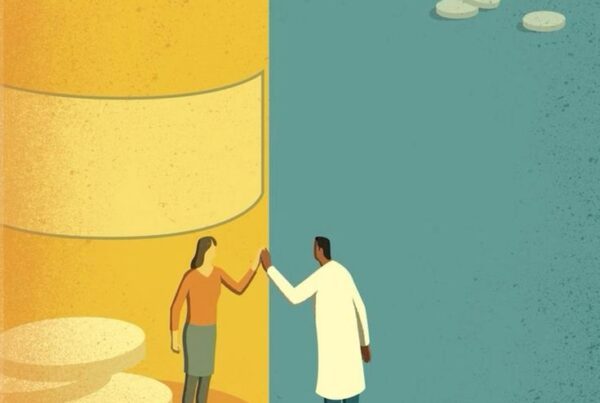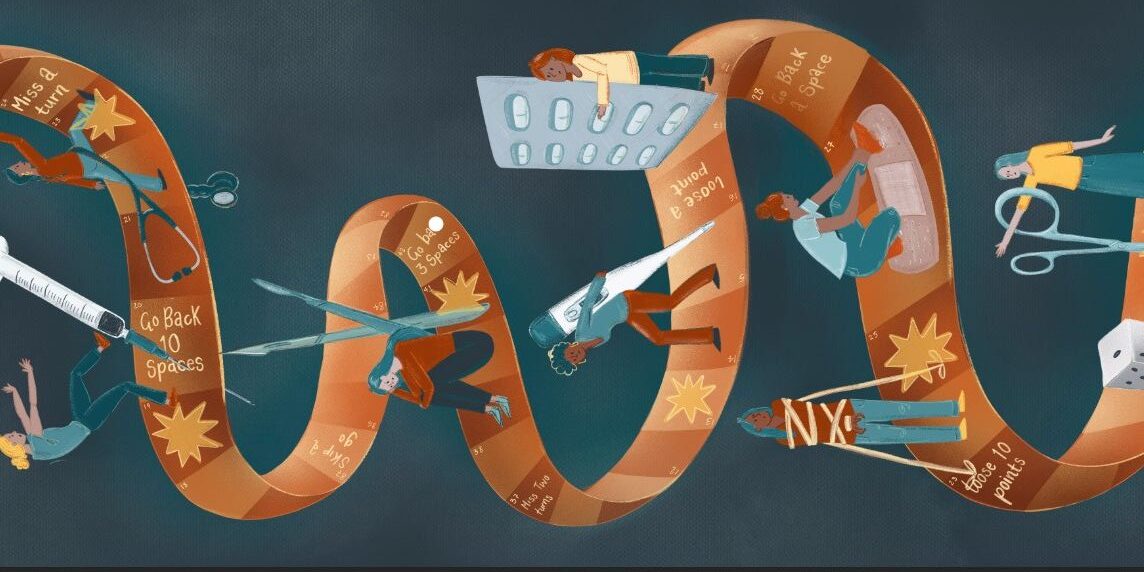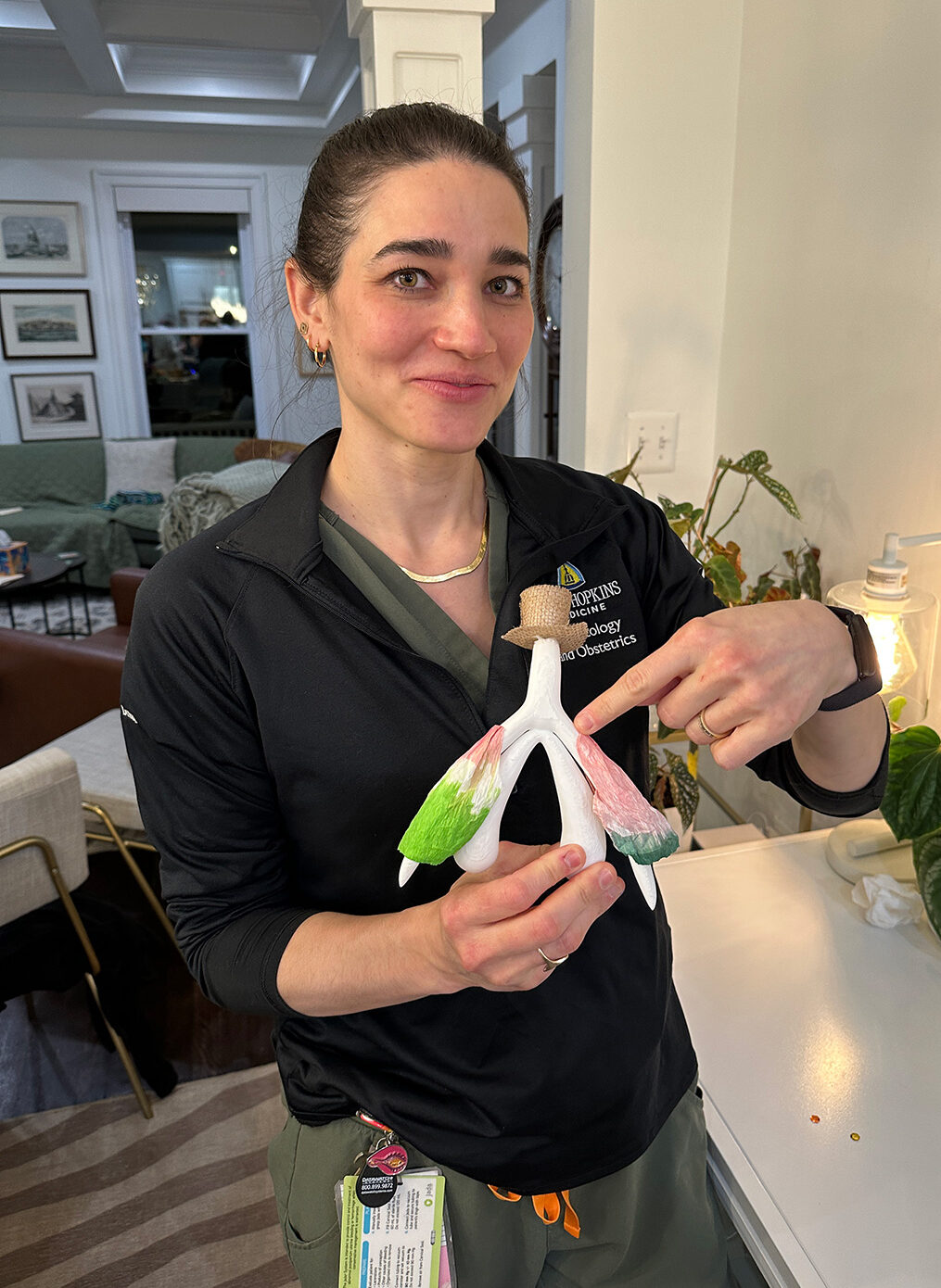The State of Menopause Care In The Global North
I’m preparing to log off for the day when I hear my email chime and open a message from a Hormonally user. It echoes a sentiment we have become sadly familiar with – ‘this information is really helpful! It makes me feel less alone, but I am struggling to access support, what can I do?’ Reading further through the message I see a link attached to a Reddit thread. I click the link and am redirected. 32 thousand users are a part of this Reddit group. The topic? Perimenopause. Scrolling
from one account to the next I begin to collect their stories.
I am writing this blog post for these women. For the women in forums seeking support, for the mothers of teens ‘doctor hopping’ and getting ‘passed off’, for the rural community members who can’t access a provider. For the middle incomers whose insurance won’t stretch. And, importantly, for the menopause ‘changemakers’—the ones with platforms, resources, and influence. To that final group, I’d like to underscore the state of affairs: menopause may be having a moment, but not every woman is being invited to sit at the table.
Menopause Is ‘Hot’ Right Now
I began my PhD in 2017— pre-‘menoboom.’ No morning television segments and no national conversations about access to hormone replacement therapy (HRT). Fast forward to the present day, I still have questions for those driving progress within the menopause space. Specifically, who are your efforts serving?
From wellness influencers to medical panels, the narratives about menopause communicate a very particular narrative – they express the experiences of women who have access to resources others are denied. Summits and Instagram campaigns alike, the faces of menopause advocacy do not currently reflect the diversity of all women navigating this transition.
The uncomfortable reality is the ‘menopause moment’ is leaving the voices of women of color, women with limited economic resources, and those in rural communities on the sidelines.
Consequences Of Exclusion
The cultural traction facilitating conversations about menopause is not something to be diminished. It has enabled huge advancements in both our understanding of menopause and advocacy for adequate care. Prominent organizations such as The Menopause Society continue to raise awareness and facilitate essential research, but it is important to query, who is this awareness uplifting?
While women of color are more likely to have menopausal symptoms downplayed by healthcare providers, the experiences of middle-class, white, urban women remain the predominant focus among menopause advocates, reinforcing a view of menopause that reproduces health inequity.
The barriers preventing women from accessing support are the same as those impacting the wider landscape of women’s health—systemic racism, socioeconomic inequality, and medical biases. Disparities in menopause care are not the result of individual oversight but of deeply ingrained systemic inequities. We need to do more.

A System Building Barriers
Despite the fact that Black women face greater health challenges during perimenopause and menopause, they are less likely to be prescribed treatments such as HRT. Their symptoms are often downplayed, dismissed, or overlooked entirely by healthcare providers. Latina and Indigenous women face similar hurdles, including limited access to insurance provision.
Women in rural communities are consistently side-lined in conversations about reproductive justice and menopausal healthcare. One in three counties in the US currently lack access to a single OB-GYN and distance to a provider is often an insurmountable barrier. Those who can make the journey to a clinic report being met with waitlists, expensive consultations, or dismissive care.
Without access to healthcare providers, women are being left to self-diagnose, self-manage, and—if they can afford it—purchase overpriced treatments online. While telemedicine is bridging an important gap, the conversations we have at Hormonally with women echo a similar refrain – my insurance isn’t accepted, I can’t afford the consultation fee, I’m exhausted from chasing support and I’m getting nowhere.
Without access to proper care, the impact of menopause can be profound. Not only can it lead to long-term health complications such as osteoporosis and increased risk of cardiovascular disease, but untreated symptoms can take a toll on women’s mental wellbeing and physical wellbeing.
‘Invisible symptoms’ such as an increase in changes to women’s mental health are commonly reported and up to 80% of women are experiencing changes to their vulvovaginal health with only 10% of this cohort seeking care.
Whose Story Are We Telling
If we’re only telling the story of menopause as it affects a particular population, then we’re telling an incomplete story.
While we celebrate increased awareness of menopause as part of World Menopause Day, we must remember that access to care remains unequal for many, and we can all do more to invite every woman to sit at the table and share her story.
I invite you to consider: When we talk about menopause in mainstream spaces, who are we really talking about? Are we elevating the voices of women who are most affected by gaps in healthcare; or are we reinforcing a narrow view of womanhood that excludes rather than includes?

The Menopause Access Initiative
At Hormonally, we’re dedicated to changing the narrative and landscape of women’s health. That’s why we’re launching the Menopause Access Initiative, a program that aims to deliver essential menopause resources directly to the communities that need them the most.
Our goal is to ensure that women who are systemically under-supported within mainstream menopause efforts can still gain access to evidence-based information, care, and support. This initiative funds the creation of culturally competent resources, virtual workshops, and partnerships with local clinics within underserved communities. We’re pushing to make menopause care available to every woman.
If you would like to join us and become a vital part of this movement, your donation will help us to deliver critical resources to the women and gatekeepers who can provide care. Together, we can create a future where no woman is excluded from the menopause conversation.
References
Armenta-Paulino, N., Wehrmeister, F.C., Arroyave, L., Barros, A.J.D. and Victora, C.G. (2022). Ethnic inequalities in health intervention coverage among Mexican women at the individual and municipality levels. eClinicalMedicine, [online] 43, p.101228.
Howard, J. (2024). First on CNN: US faces maternity care crisis, with 1 in 3 counties lacking obstetric doctors to provide care, report warns. [online] CNN.
Kendall, M. (2020). Hood feminism: Notes from the women that a movement forgot. Bloomsbury Publishing.
Sutton, M.Y., Anachebe, N.F., Lee, R. and Skanes, H. (2021). Racial and Ethnic Disparities in Reproductive Health Services and Outcomes, 2020. Obstetrics & Gynecology, [online] 137(2), pp.225–233.






